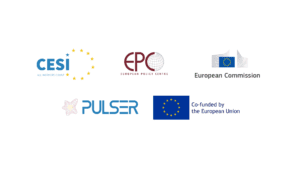2022-05-12 11:50
The Pillar sets out 20 key principles and rights essential for fair and well-functioning labour markets and social protection systems, structured around three chapters: equal opportunities and access to the labour market, fair working conditions, and social protection and inclusion.
In 2017, the European Parliament, the Council and the Commission proclaimed the European Pillar of Social Rights. The Pillar sets out 20 key principles and rights essential for fair and well-functioning labour markets and social protection systems, structured around three chapters: equal opportunities and access to the labour market, fair working conditions, and social protection and inclusion.
Equal opportunities and access to the labour market
- Education, training and life-long learning
- Gender equality
- Equal opportunities
- Active support to employment
Fair working conditions
- Secure and adaptable employment
- Wages
- Information about employment conditions and protection in case of dismissals
- Social dialogue and involvement of workers
- Work-life balance
- Healthy, safe and well-adapted work environment and data protection
Social protection and inclusion
- Childcare and support to children
- Social protection
- Unemployment benefits
- Minimum income
- Old age income and pensions
- Health care
- Inclusion of people with disabilities
- Long-term care
- Housing and assistance for the homeless
- Access to essential services
In March 2021, the European Commission presented its Action Plan for the implementation of the Pillar. With the European Pillar of Social Rights Action Plan, the Commission has set out concrete initiatives to turn the 20 principles of the Pillar into reality.
The Action Plan puts forward three EU-level targets in the areas of employment, skills and social protection to be achieved by 2030:
-At least 78% of the population aged 20 to 64 should be in employment by 2030.
-At least 60% of all adults should be participating in training every year by 2030.
-A reduction of at least 15 million in the number of people at risk of poverty or social exclusion.
These actions require a joint effort by Members States and the EU, with an active involvement of social partners and civil society.
Representing the voice of millions of civil servants across Europe, CESI carried out an ambitious 2-year project (2019-2021) with the aim to raise awareness among policymakers and the society in general about the added value of well-staffed and hence performing public services to deliver the principles of the European Pillar of Social Rights.
Under the PULSER project which was co-funded by the European Union, CESI successfully organized a series of meetings, European conferences, campaigns, studies, working sessions and events on the EPSR.
CESI remains committed to the strengthening of the public sector and the protection of civil servants before, during, and after the pandemic.





